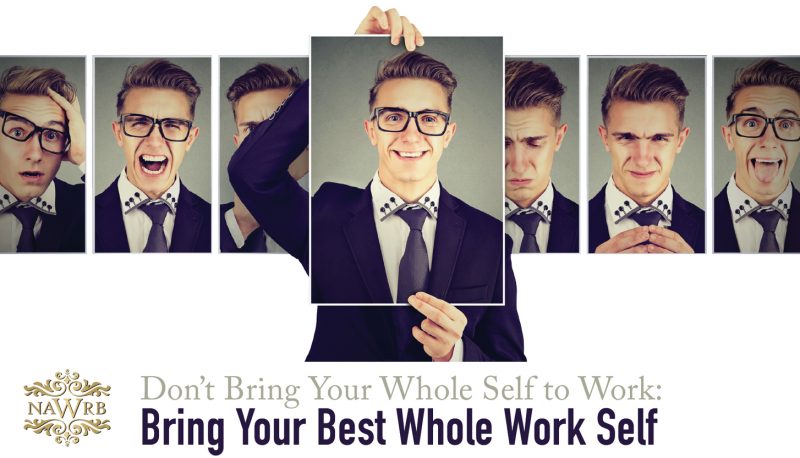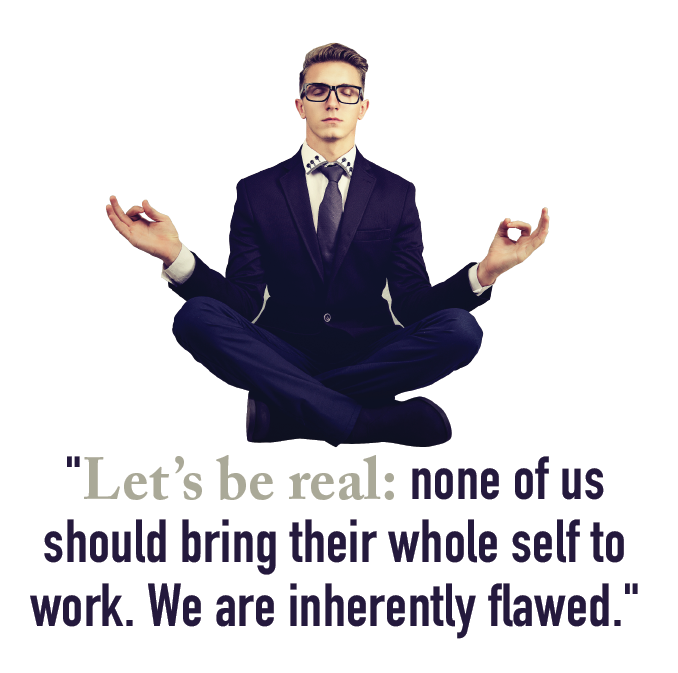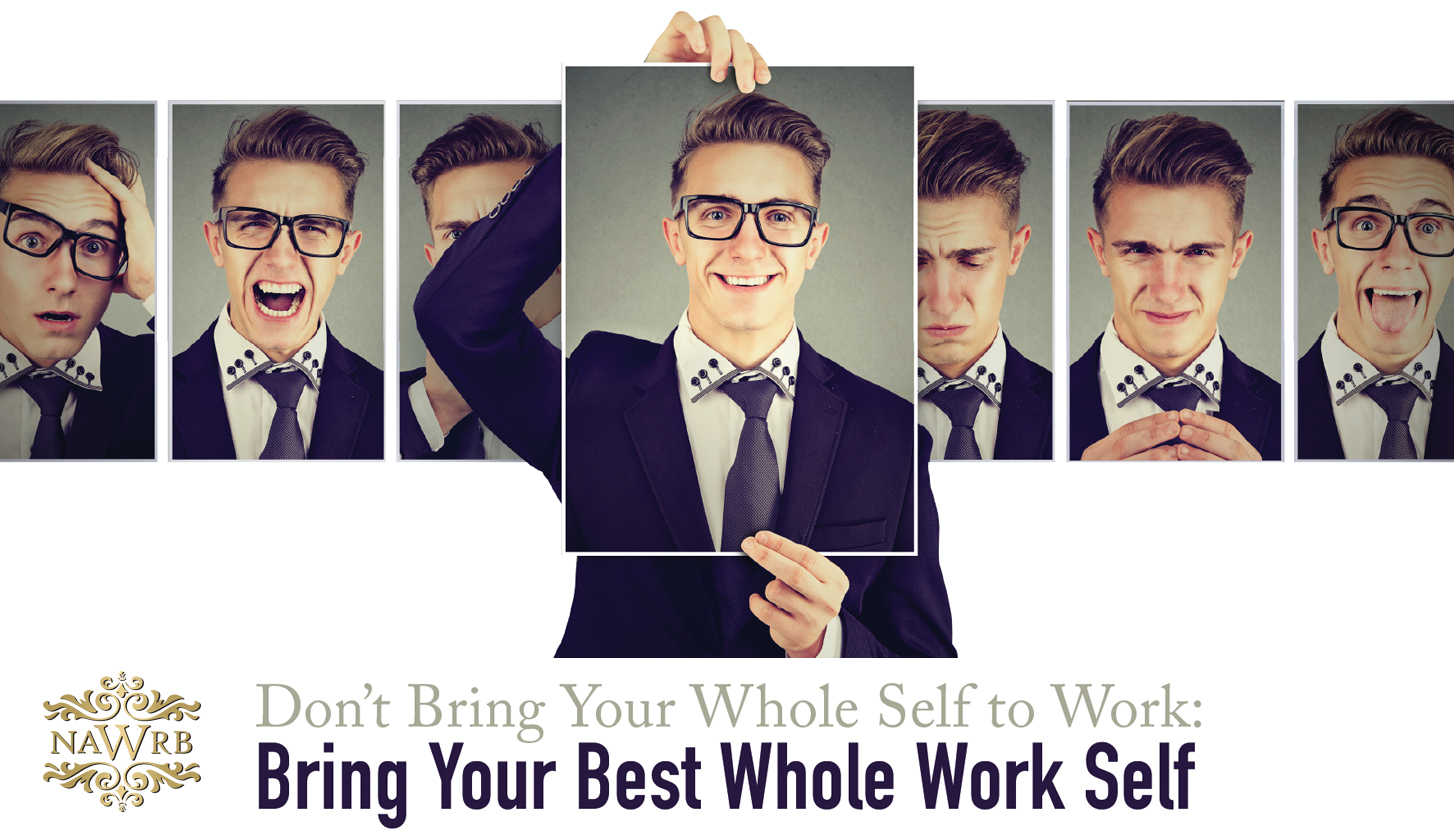 As I look back on my twenty-five-year career in corporate America, I am struck by and struggle with the Diversity & Inclusion (“D&I”) and employee engagement mantra to “bring your whole self to work.” That might surprise you if you know me: I started my career working on D&I, and have worked on D&I inside and outside the workplace ever since. Some may even consider me a champion of D&I. But it is my passion for D&I that brings me to the conclusion that it is time to break the “bring your whole self to work” myth.
As I look back on my twenty-five-year career in corporate America, I am struck by and struggle with the Diversity & Inclusion (“D&I”) and employee engagement mantra to “bring your whole self to work.” That might surprise you if you know me: I started my career working on D&I, and have worked on D&I inside and outside the workplace ever since. Some may even consider me a champion of D&I. But it is my passion for D&I that brings me to the conclusion that it is time to break the “bring your whole self to work” myth.
The idea behind this mantra is simple: if employees bring their whole selves to work, they will feel better about the workplace, and by extension be happier and more productive employees (and human beings). That sounds good on paper. The problem is this: you shouldn’t bring your whole self to work if that means behaving badly. Or said differently, you should bring your best whole work self to work, not your “whole self.”
Let’s be real: none of us should bring their whole self to work. We are inherently flawed. That is what makes us human and beautiful. And we do and will bring those flaws to work (and elsewhere). But we need to manage them more effectively. Those flaws — whether indecision or impatience or a superiority complex or something else — can foster negativity, dissension, and poor morale. On the other hand, bringing our best whole work selves to work fosters creativity, teamwork, empathy, and results.
You know your best whole work self. That is the one that is compassionate and understanding and organized. They admit mistakes and try to make up for them. They drive to engage with and understand others, whether you are an introvert, extrovert, or ambivert. They figure out what communication style works for each person or team you interact with. They recognize that every human interaction is either positive or negative, and works for the former, every time. This is the person who shows up, every day, trying hard, working hard, being the best whole work self you can be.
And let me be clear: you should be able to bring your Muslim, Atheist, Evangelical Christian, Jewish, Republican, Democrat, Trump-supporting, Sanders-supporting, Independent, transgender, bisexual or alcohol-free self to work (This, of course, is not meant to be a complete list. Instead, these are examples of groups that may be underrepresented in a work environment.) That should go without saying. It also means that you should do so respectfully and civilly, and that others should treat you respectfully and civilly.
 That means bringing your best whole work self to work, because your “whole self” might not be tolerant of divergent views. Not just because each of us has implicit biases, but because we have explicit ones too. Work is a great training ground for the rest of the world and your own community — strive for respect and civility across the board, and see how far it takes you. Regardless of what your insides might be saying (or, sometimes, screaming).
That means bringing your best whole work self to work, because your “whole self” might not be tolerant of divergent views. Not just because each of us has implicit biases, but because we have explicit ones too. Work is a great training ground for the rest of the world and your own community — strive for respect and civility across the board, and see how far it takes you. Regardless of what your insides might be saying (or, sometimes, screaming).
Let’s ditch the “bring your whole self to work” mantra. And embrace bringing our best whole work selves to work. Let’s be patient and kind and compassionate. Show some grace when someone missteps, whether that grace is for yourself or a colleague. And let us recognize that our best whole work self will change over time because you change over time, and your workplace — whether you stay at the same job or go elsewhere — will change, so even one’s best whole work self is not stagnant.
I am committed to bringing my best whole work self to work (and my best whole self to the world), to be part of the positive change that is needed. And I am asking you to do the same. This call to action is for everyone, and particularly those of us in leadership roles or otherwise in a position of power.
 Sarah Alexander Goldfrank
Sarah Alexander Goldfrank
Sarah is an attorney and compliance & ethics officer with twenty-five years of experience in the financial services industry. NAWRB’s Diversity and Inclusion Leadership Council (NDILC) Member and Education Subcommittee Chair. Former Senior Vice President and Deputy General Counsel, Fannie Mae.

 Login
Login

